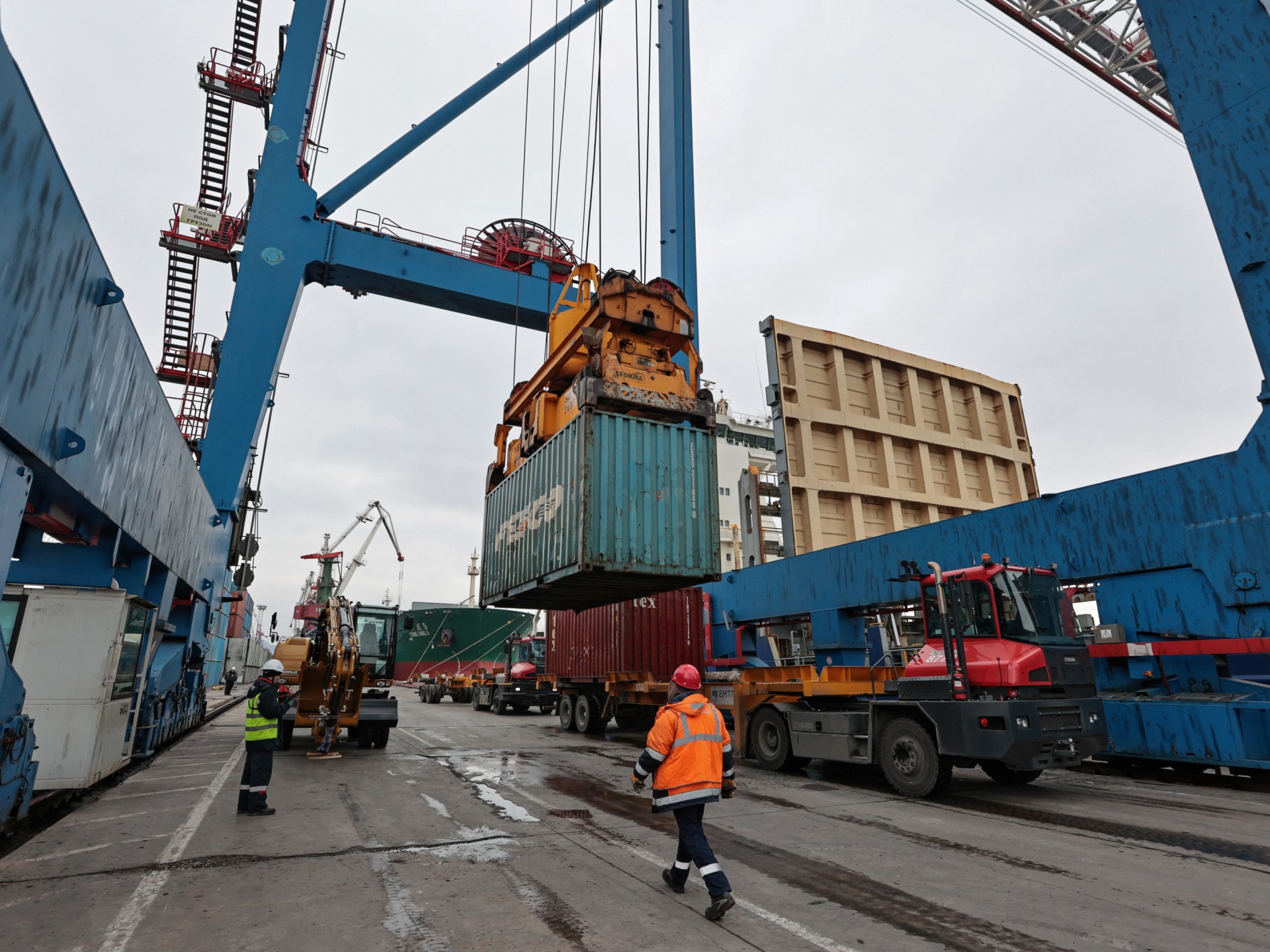The American magazine "Foreign Affairs" published an article in which its author addressed the partnership relationship between Russia and China in the last decade, based on customs data disclosed by Beijing, while the Kremlin withheld it for the sake of secrecy.
Agath Demaris, director of the Economist's Intelligence Unit, said in her article in the American magazine that following the sanctions imposed by Western countries on Russia in 2014 in response to its "illegal" annexation of Crimea, the Kremlin had stated that Russian companies were looking to China for business opportunities.
This eastward axis has taken on a more urgent character since the Russian invasion of Ukraine in February 2022; last year two bridges were inaugurated across the Amur River, which marks the border between China and Russia in the northeast.
She pointed out that Russian President Vladimir Putin and his Chinese counterpart Xi Jinping pledged - in a meeting between them in March 2023 - to deepen economic cooperation within the framework of a "borderless" partnership between their countries.
But how much assistance has China already provided to Russia since the outbreak of the war in Ukraine? Demaris began her analysis of Russia's economic shift eastward, explaining that this effort on its part is not easy, because the Kremlin has classified its trade data, "which has made it difficult to track China's support for Russia."
The author added that she found no choice but to search the Chinese customs data to find out what the two countries exchange or not, noting that these data do not include smuggling activities, and therefore are incomplete, but remain reliable enough to provide a large picture of the size of the trade relationship between the two countries.
China appears to be wary of increasing trade with Russia. Contrary to popular belief, "Moscow has little to offer Beijing"; China does not buy Russian oil and gas at a significant discount and seeks to diversify its sources of energy imports. In other words, Russia's much-talked about approach to China may not have been as successful as Putin and Xi claim.
Axis on paper
In 2022, Western sanctions mostly targeted Russian imports of Western products, including auto parts, aircraft and machinery, reflecting Europe's reluctance to get rid of its addiction to Russian energy.
Russia has also lost — and Demaris still speaks — access to advanced semiconductors, which rely on U.S. technology, causing headaches for the Kremlin, as Russia needs sophisticated microchips to build the missiles it uses in Ukraine.
On paper, the Sino-Russian trade relationship appears to be gaining momentum; the value of China's exports to Russia in U.S. dollars rose by 12.8 percent last year, supported in part by exchange rate movements due to the depreciation of the Chinese yuan against the U.S. dollar and Russian ruble, which increased the competitiveness of Chinese exports to Russia.
China is in no hurry to fill the vacuum left by the withdrawal of Western companies from Russia, raising the question of why the Russian market is not attractive to Chinese companies.
According to Foreign Affairs, China is in no hurry to fill the vacuum left by the withdrawal of Western companies from Russia, raising the question of why the Russian market is not attractive to Chinese companies.
Demaris says some of the answers to the question are clear: Russia's economy "stagnated" last year, and economic growth will slow this year as well.
Another disincentive factor is the Kremlin's decision last year to dispense with international standards protecting intellectual property. Given that the Russian public has traditionally been suspicious of China, Chinese companies know they may not be welcome. But the main reason why Chinese companies are reluctant to do business across the Amur River may have more to do with Washington than Moscow.
Demaris concludes her article by claiming that Putin's broad expectations of his unlimited partnership with China have not been met, and China has not responded to Russia's "enthusiastic" approach in kind.

